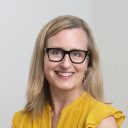The Innovations in International Philanthropy Symposium – held in the beautiful, if somewhat exclusive American Academy of Arts and Sciences (AAAS) – provided me room for reflection on changes underway in philanthropy.
My own journey in the sector – as founding Executive Director of the Disability Rights Fund – started just prior to the founding of the Network of Engaged International Donors (NEID) — co-host of the conference with The Philanthropic Initiative (TPI). In fact, I secured space for NEID’s first meeting where DRF had our offices. At the time, NEID was a small gathering – mainly individual donors and family foundations from the Boston area. It was powered by its founder Karen Ansara and her expansive and expanding network, which I quickly became a part of. I sat on NEID’s first steering committee.
But, DRF often felt like an outlier at NEID and other philanthropic networks of the time, such as the International Human Rights Funders Group (now the Human Rights Funders Network). We were a small intermediary, not endowed, and one of the first global grantmakers involving people with lived experience in our structure and decision-making.
Today, nearly 15 years later and especially since the pandemic, there is an enormous growth of interest in participatory philanthropy, and many donors are centering equity and power shifting to the communities they are funding. In opening the Symposium, NEID’s Ina Breuer and TPI’s Maggi Alexander started by saying that the event would ‘not only focus on the what, but the how of philanthropy.’ A track on Advancing Equity and keynotes from Global South changemakers emphasized the shifts happening across philanthropic circles seated in the Global North. And the room was full of funders from all levels of philanthropy, from classic large human rights donors like Open Society and Ford Foundations to intermediaries like United Universalist Service Committee and Dasra to corporate philanthropic advisors and family funds – all interested in this topic.
Keynote speaker, Moky Makura, founder of Africa No Filter, raised the critical role that perspectives about the Global South – or indeed about any part of the Global Majority – play in shifting power. She addressed ‘prevailing narratives about the continent: 1) that Africa is broken, 2) that we’re dependent, and 3) that we lack the agency to create the change we need.’ In her work building a field of African storytellers who create and own their own narratives, she is countering the idea that anyone, including philanthropy, needs to ‘save’ Africa (or anyone). Moky’s presentation eloquently addressed the phenomenon of ‘white saviorism’ that has been so present in Western/Northern philanthropy.
A later session on Using Funds to Achieve Localization highlighted the expansion of local philanthropy across parts of the Global South, including India and Africa. Presenter Deval Sanghavi, co-founder of Dasra, spoke about the significance of catalysing local giving sectors to scale local solutions. He urged the room full of philanthropists mainly from the Global North to consider not what they might give to in India, but how their funding might support the infrastructure for locally-led giving – increasingly important in all places where there are growing restrictions on foreign funding, but even more so to shift the seat of resources and right the balance of power through practices like decolonizing wealth.
My own session on Funding Beyond Identities, co-led with Catherine Townsend from Ford Foundation, prompted participants to think outside of population and issue-based funding to a more wholistic view that better addresses the reality of grassroots and marginalised groups with multiple identities confronting multiple issues. This is the world we live in now, where for example, feminist goals cannot be separated from climate justice goals or from racial or disability justice. Just consider how all of these issues are linked in Long COVID.
These discussions all addressed the HOW of philanthropy, but also the WHO. Whose vision is being centered? Who is making the decisions? Whose resources are we talking about? The shift from discussions of 15 years ago was palpable. Yet, as I walked away, I considered how far we still have to go. With all of NEID’s expansion, we still need to think about who has access to these events – who knows about them and who can afford them – and where they are situated in the larger context of inequality. In the venue – the AAAS, an academy that determines ‘those who discover and advance knowledge’ and among whose 14,500 members very few are from the Global South – a poignant question was raised: ‘what is the role of philanthropy, which makes up 7% of total giving, against the role of remittances, which makes up 58%, in supporting people in the Global South?’
With the world’s most populous nation, India, now president of the G20, I might add, ‘who indeed is leading change?’
Diana Samarasan is an independent consultant with expertise in disability rights and inclusion, disability at the intersection with gender and other rights, and participatory philanthropy and practice at a global level. She is the founder and previous Executive Director of participatory grantmakers, the Disability Rights Fund (DRF) and the Disability Rights Advocacy Fund (DRAF), which are collaborations between donors and global disability activists to support the growth and diversification of disability rights movements across Africa, Asia, the Pacific and the Caribbean






Comments (0)